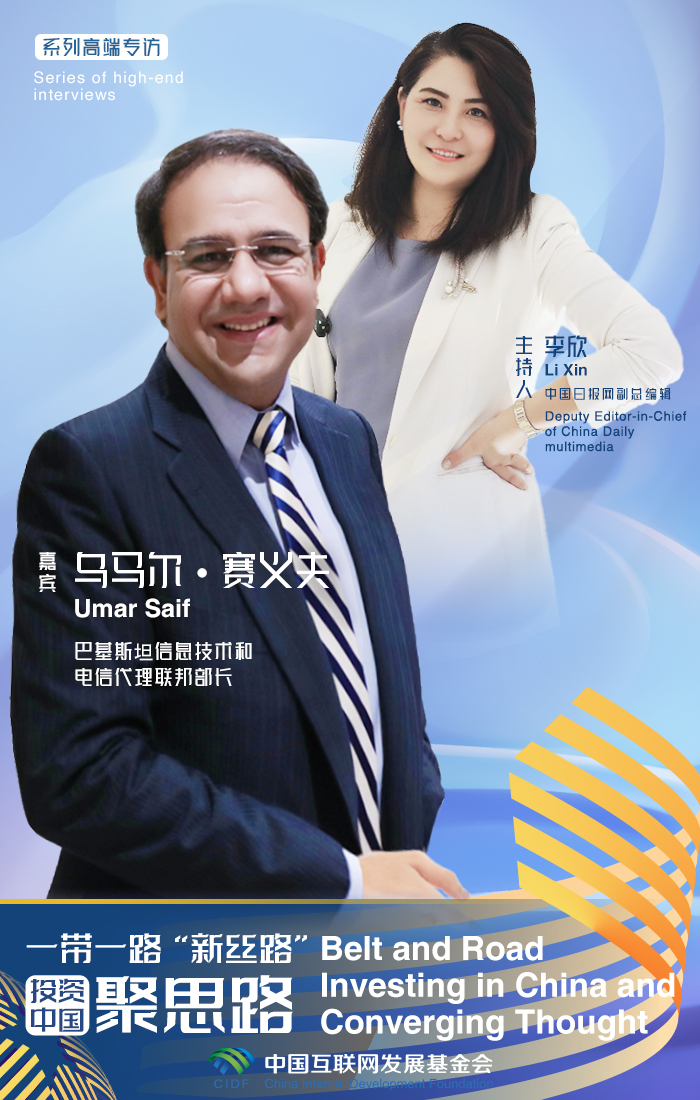Digital Belt and Road has enormous potential for development


In the future, the digital roads constructed under the framework of the Belt and Road Initiative will embrace the same huge development potential as those of physically constructed roads, said Umar Saif, federal minister for science and technology and minister of IT & telecommunication of Pakistan, in an interview at "The Belt and Road: Investing in China and Converging Thought" event.
Looking back on the past decade, Saif said that the Belt and Road Initiative connects many countries along trade routes, with some becoming production countries, some becoming consumer countries, and some benefiting from China's strategic investments along the trade routes. He expressed his hope for Pakistan to become an integral part of the initiative in the future, and to have mutually beneficial relations with China.
With the continuous development of digitalization, Saif believes that the Belt and Road Initiative will also become a digital interconnection road. Pakistan is strategically close to China, with its ports and submarine internet cables. This digital linkage allows Pakistan to connect with Central Asian countries, China, and many other neighboring countries.
Saif said, "My favorite project is the fiber optic investment project from Kashgar, Xinjiang, China to Islamabad, Pakistan. This connection ultimately provides a digital link for other regions of the world. It is a ground route, but also a crystal route. Therefore, Pakistan can truly become an alternative transit route for internet traffic through the fiber optic investment project. Its endpoint is close to Pakistan, extending all the way to China and connecting the entire Central Asian countries."
When discussing the potential for future cooperation between Pakistan and China, Saif pointed out that Pakistan is a young country with 65 percent of its population under the age of 35. It is the world's seventh-largest mobile phone user country but has few mobile phone manufacturing companies. As an agricultural country, Pakistan does not have any agricultural technology startups with a market value of over $1 billion, while China has multiple agricultural technology startups worth tens of billions of USD. Therefore, the tremendous opportunities are not only for countries to invest in Pakistan's technology but also for Pakistan to acquire information, technology, and tools.
"Pakistan is a country with the potential for regional digital connectivity and has tremendous potential for cooperation with China in terms of economy, trade, high-tech product, and goods," Saif said.
"The Belt and Road: Investing in China and Converging Thought" themed event was organized by China Daily website and sponsored by China Internet Development Foundation.

































